Spring 2024 viewing, part two
Continuing my survey of what I’ve been watching this Spring…
Mondo Macabro
Mondo Macabro is a label I haven’t mentioned much here, though they specialize in genre movies from around the world and I’ve discovered some real oddities through them – like H. Tjut Djalil’s Mystics in Bali (1981) and Juan Lopez Moctezuma’s Alucarda (1975).
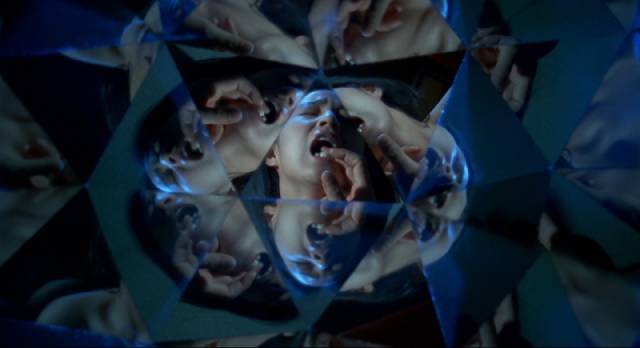
Suddenly in the Dark (Go Yeong-nam, 1981)
Go Yeong-nam’s Suddenly in the Dark (1981) belongs to what seems a notable strain in Korean cinema, running from Kim Ki-young’s The Housemaid (1960) through Bong Joon-ho’s Parasite (2019), in which middle class privilege and complacency comes under threat from a dispossessed underclass. These films offer an unsettling glimpse of domestic horror in which it’s uncertain where audience sympathies should lie. In Go’s movie, a professor returns from a butterfly-collecting trip one day with a young woman whom he presents to his wife as the new maid. He found Mi-ok wandering along the road and gave her a ride; as her parents were dead, he just brought her home to help his wife out with housework and childcare.
The professor’s wife, already paranoid about the possibility he’s being unfaithful, is suspicious of the new domestic, apparently the daughter of a village shaman, who clings to a sinister doll which her mother used in her ceremonies. Whether the wife is losing her sanity or actual supernatural events begin to occur, life in the house becomes increasingly unhinged, the gathering darkness conveyed through paradoxically colourful imagery.
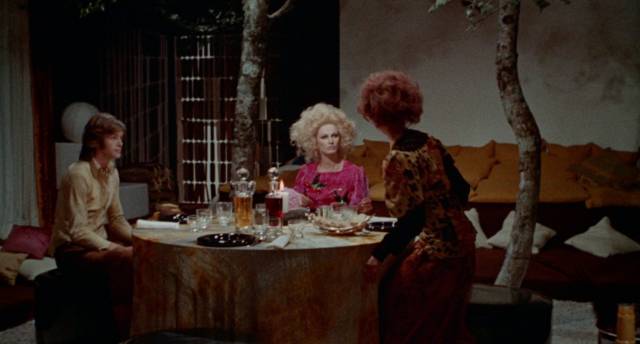
Queens of Evil (Tonino Cervi, 1970)
Tonino Cervi’s Queens of Evil (1970) is an erotic horror movie with a pronounced fairytale atmosphere. Drifter David (Ray Lovelock) stops his motorcycle one night to help a well-dressed man who has a flat tire. As he replaces the wheel, the man abuses him for his aimlessness and antisocial lifestyle. Later, David comes across the man’s car smashed into a tree, with the driver dead behind the wheel. A little farther ahead, he sees some police on the road and, not wanting to be connected with the accident, cuts into nearby woods, where the trail takes him to a remote lake house. He sneaks into a nearby shed and settles down for the night.
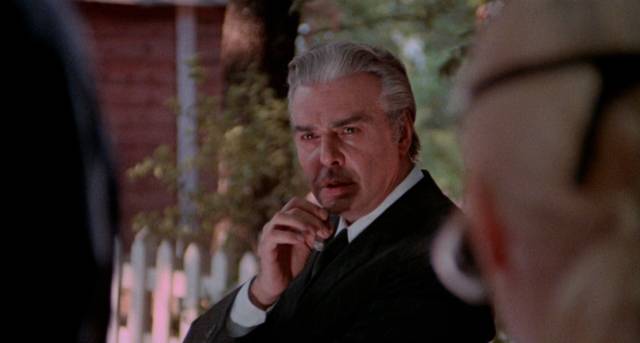
In the morning, he’s discovered by the house’s occupants, three seductive women who tease him and stir his libido. Each in turn lures him into a sexual encounter, while the only food available in the house are sumptuous cakes and sweet treats, signalling that David has become ensnared like Hansel and Gretel in the witch’s house. The women’s charms undermine his determination to remain an unattached loner, gradually luring him into willing submission to a life in service to their seemingly insatiable sexual appetites. Having been proved a moral failure, he is made a sacrifice by a coven which serves the Devil, who happens to be the abusive man he had stopped to help with the flat tire. After burying David in the garden, the members of the coven are sent back out into the world to find others who are undermining society with their loose, immoral behaviour.
Undeniably reactionary towards the ’60s’ rejection of conventional morality, there’s an ambiguity in the movie – after all, the representative of conventional morality is Satan himself, who uses sex without emotional attachments as a weapon against those he wants to destroy. The three “witches”, played by Haydée Politoff, Silvia Monti and Ida Galli (as Evelyn Stewart), give the film an erotic charge which belies the underlying conservatism, and Cervi manages to use this – and some nudity – to make the supposedly menacing sexual freedom seem very appealing. David’s situation is more reminiscent of Clint Eastwood’s in The Beguiled (1971) than of the porn scenario it might suggest.
*
Eureka/Masters of Cinema
My latest disks from Eureka/Masters of Cinema include a pair of silent movies and a martial arts double feature from Taiwan’s Joseph Kuo, a follow-up to Eureka’s excellent four-disk set from 2021.
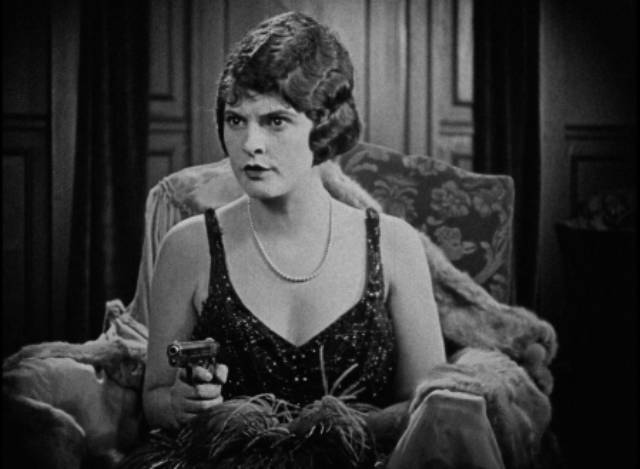
Outside the Law (Tod Browning, 1920)
Tod Browning’s Outside the Law (1920), although one of a series of films made by the director at Universal with star Priscilla Dean, is perhaps more significant as his second collaboration with Lon Chaney, already dubbed “the man of a thousand faces”. Dean plays Molly, daughter of gangster Silent Madden (Ralph Lewis), who along with her father has reformed under the influence of Chang Lo (E. Alyn Warren), a wise Confucian living in San Francisco’s Chinatown. But when gangster Black Mike frames Madden for the murder of a cop, sending him to prison, Molly rejects the straight life. She has to reform all over again through the supportive influence of her gangster boyfriend Dapper Bill (Wheeler Oakman) and a cloyingly sentimental little boy (Stanley Goethals) who lives across the hall from their hideout. The dated melodrama and sentiment are off-set by the presence of Chaney in the dual roles of Chang Lo’s servant Ah Wing and Black Mike, as Manichean a pairing as silent cinema ever offered, which culminates in a climactic moment during the final-act shootout when Ah Wing shoots and kills Mike.
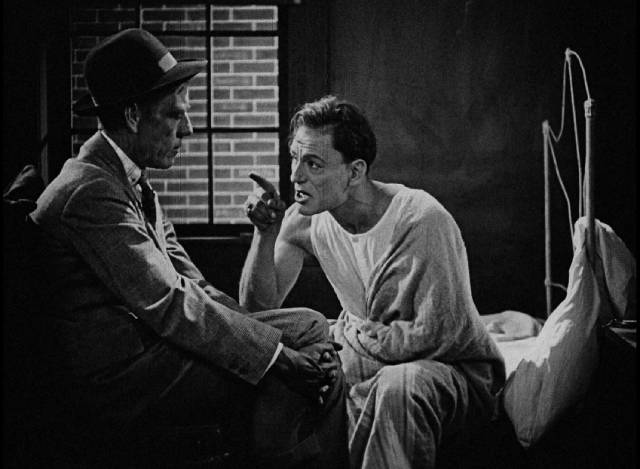
Although Dean is little remembered now, she was a popular star through the teens and twenties, but as with so many her career didn’t survive the arrival of sound. Outside the Law was Browning’s twenty-first feature in five years and he handles the melodrama and action with assurance – though the heavy-handed sentimentality surrounding the little boy, along with some very obvious religious imagery, now seems almost like self-parody. Chaney seizes the opportunity to display his range, though the dual roles don’t exploit his penchant for physical deformity which was already becoming his hallmark in movies like George Loane Tucker’s The Miracle Man (1919) and Wallace Worsley’s The Penalty (1920), and would make him one of the most recognizable stars of the twenties, not least in the films he would soon be making with Browning at MGM.
The Universal 4K restoration for the most part provides an impressive image, but there’s severe nitrate deterioration in the last two reels which obscures some of the action. The disk includes an interview with Kim Newman and the alternate ending from a 1926 reissue which ditches the big action finale in favour of a quieter scene in which Molly, Bill and Chang Lo persuade Madden to give up his desire for revenge.
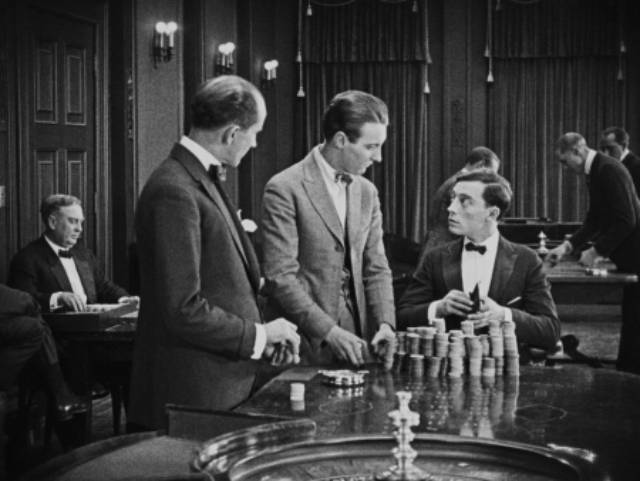
The Saphead (Herbert Blaché, 1920)
As a long-time fan of Buster Keaton, I have no idea why I’ve only just got around to seeing his first feature, The Saphead (1920). Four years into his career as a silent comic, mostly working with Roscoe “Fatty” Arbuckle, he was unexpectedly cast as one of the main characters in an adaptation of an 1887 play by Bronson Howard which had been revived in the mid-teens and filmed by Christy Cabanne in 1915 with Douglas Fairbanks in the role of the feckless son of a wealthy New York family. When the property was revived a few years later, Fairbanks was busy and counter-intuitively recommended Keaton for the role.
The narrative revolves around businessman Nicholas Van Alstyne (William H. Crane) and his acquisition of a mine out West. His daughter Rose (Carol Holloway) is married to Mark Turner (Irving Cummings), whose unscrupulous business dealings threaten his father-in-law’s company. Meanwhile, Rose’s brother Bertie (Keaton) is working hard to be a decadent, money-wasting man-about-town because he believes that’s what makes a man attractive to women and he wants to impress his adopted sister Agnes (Beulah Booker) because he’s hopelessly in love with her.
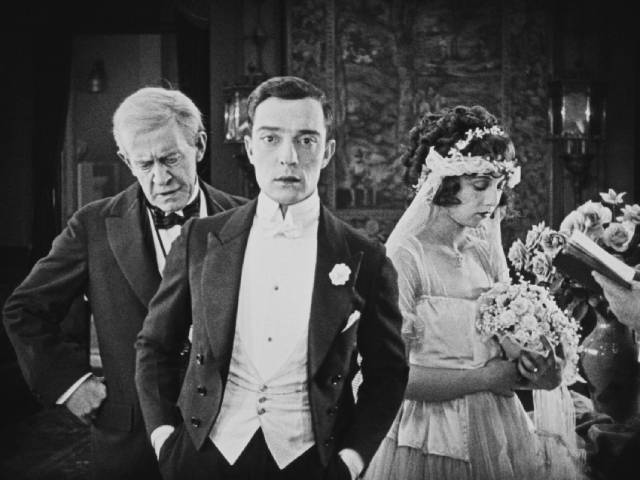
The melodrama – which involves Bertie taking the blame for Turner’s immoral behaviour in order to protect Rose, being disinherited by his father and losing Agnes, before inadvertently saving the company – is of secondary interest. What makes the movie fascinating is seeing Keaton forging the on-screen persona he’s now famous for. While Bertie, unlike the typical Keaton character, is completely oblivious rather than smart and resourceful, and only in the final stretch set in the stock exchange does he get to display his agile physical comedy, Keaton here strips away all unnecessary expression, underplaying in a way which paradoxically holds the attention of the camera (and the audience) through a formidable use of stillness. Here is the birth of “the great stone face”, and his ability to make you notice the slightest gesture or shift in expression. It’s as if all at once he’s inventing an entirely new form of film acting, the technique which would make him one of the greatest screen comics of the era (my personal favourite, as I much prefer his refusal to display emotion to Chaplin’s sentimental appeal to the audience he so desperately wants to like him).

While the film which surrounds him isn’t original or innovative – it was after all based on a thirty-plus year old stage melodrama – and director Herbert Blaché (former husband of pioneering filmmaker Alice Guy) stages things without a lot of imagination (visually, you can virtually see the theatre proscenium, with everything shot wide from the front), Keaton’s talent and invention are on full display, seeming to emerge fully-formed from the unpromising material.
Restored from an original nitrate print, the disk provides a superb image and is loaded with supplements, including a David Kalat commentary, hours of audio interviews with Keaton, a video essay by David Cairns, Keaton’s final appearance in a Canadian short dealing with safety on construction sites, plus a different 75-minute cut of the film made from alternate takes, and a featurette comparing the two versions.
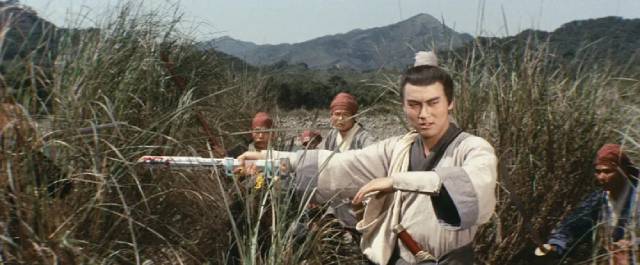
The Swordsman of All Swordsmen (Joseph Kuo, 1968)
Taiwanese director Joseph Kuo has an uneven reputation, partly due to his high output of low-budget martial arts movies which emulated the more successful made-in-Hong Kong genre movies of the time which had big studio resources and more recognizable stars. Kuo was more of an exploitation filmmaker working on the fringes of the business – but like many such marginal creators, he displayed an energy and inventiveness which often compensated for the limitations he had to deal with.
Kuo had been directing romances and melodramas for a decade when, in 1968, no doubt inspired by the success of King Hu’s made-in-Taiwan Dragon Inn (1967), he switched tracks and made The Swordsman of All Swordsmen, a wuxia drama which drew on familiar tropes, but shaped them with some originality. The film begins with an arrogant swordsman who decides he wants the daughter of a street performer; he beats the old man to the point of death, but before he can drag the girl away a stranger confronts him and quickly dispatches him with a masterful use of his sword. The dying father begs him to take care of his now-orphaned daughter, but the stranger declines because he’s focused on a mission of revenge.
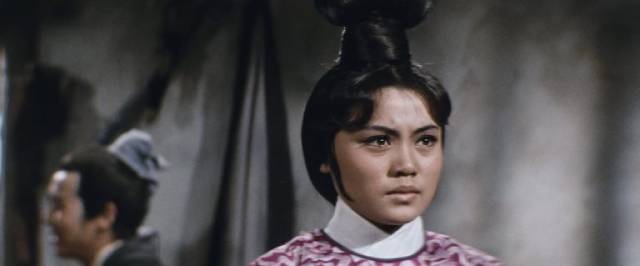
In flashback, we see him as a boy witnessing five swordsmen massacring his entire family for possession of a legendary sword. One of the killers insists that the boy should also be killed, but the leader spares him. As this boy grows up, he devotes himself to the study of sword fighting so that he can avenge his family, and now he’s on a journey to track down the five killers – the man who has killed the street performer being the first.
So far, so familiar. Revenge is a major theme in martial arts movies; what matters is how the hero pursues his mission and, of course, how the fights are staged. Kuo, who co-wrote the script with Chiang Shui-Han and Hsu Tien-Yung, adds some interesting nuances to the narrative. At one point, the hero Tsai (Tien Peng) is aided in a fight by another swordsman, but this man reveals that he saved Tsai only because he wants to duel him to see who’s the best. More importantly, he encounters and is helped by Fei Yen-Chi (Lingfeng Shangguan, who had debuted the previous year as the female lead in Dragon Inn), who saves his life after he’s seriously injured in a fight.
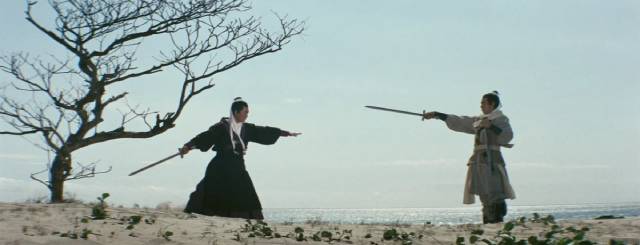
These two other characters bring additional themes into the story – the swordsman highlights the underlying absurdity of mastery of the weapon as an end in itself, while the eventual revelation of the woman’s identity complicates the single-mindedness of Tsai’s mission. Although she saved his life, she’s the daughter of the leader of the men who killed his family and she wants to save her father by persuading Tsai of the futility of revenge. The implications of that futility become clear when he finally reaches her father – an old man, blind now and filled with remorse for his actions. Faced with this, and recalling that this now-frail man had spared him as a child, Tsai must finally confront the moral confusion at the heart of his mission, the fact that his entire life has been devoted to avenging his family to the exclusion of all other considerations (like leaving the street performer’s daughter alone to fend for herself). Does sparing the old man now dishonour his murdered parents? Would killing him actually resolve anything? These questions continue to hang over the final sequence as Tsai finally fights the duel with the swordsman who had earlier saved him … what is the point of a life devoted to his weapon, a weapon which was the initial cause of all the death which has followed, since it was possession of a particular blade which led to the destruction of his family?
Although this was Joseph Kuo’s first wuxia film, it’s one of his best, with complex characters, impressively staged fight sequences, and spectacular landscape photography. He had obviously learned the lessons of King Hu very well.
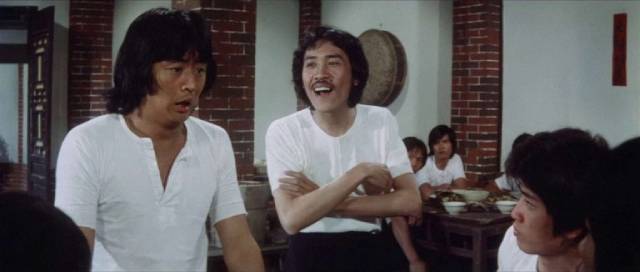
The Mystery of Chess Boxing (Joseph Kuo, 1979)
Eleven years and some forty features later, Kuo made The Mystery of Chess Boxing (1979), another story of revenge, but with a pronounced comic streak echoing the kind of movies Jackie Chan had recently begun to make (Snake in the Eagle’s Shadow, Half a Loaf of Kung Fu, Drunken Master [all 1978]). In this case, the hero is Ah Pao (Li Yi-Min), a young man who gets into a martial arts school run by Chi Siu (Jack Long) because he wants to learn how to fight so he can get revenge against the man who killed his father. That man, Ghost Faced Killer (Lung Kuan-Wu), is also on a mission of revenge, tracking down and killing those he believes had wronged him. Thus, violence and revenge are presented as an endless, and ultimately futile, cycle.
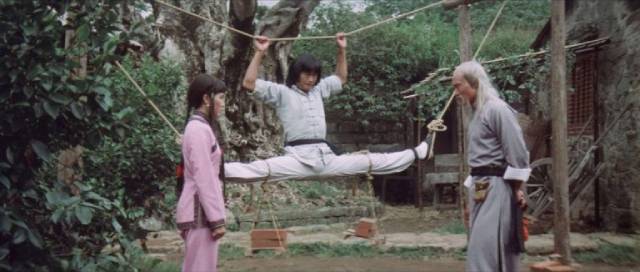
While Ghost Faced Killer (whose name was appropriated by rapper Ghostface Killah of the Wu-Tang Clan) is a formidable antagonist, much of Ah Pao’s story is played for humour. At the school, he is treated with disdain by the master and arrogant students. But he’s taken under the wing of the school cook (Yuen Siu-Tin, probably best-known as Beggar So from Drunken Master), whose back-story we never learn, though apparently he’s hiding out at the school and will eventually meet an off-screen death at the hands of Ghost Faced Killer. With Ah Pao assigned to kitchen duty, the cook manages to teach him great dexterity and coordination – sequences in which Ah Pao juggles multiple bowls of congee have a distinct Jackie Chan quality – which eventually serves him well in the final showdown with Ghost Faced Killer.
Less well-formed than The Swordsman of All Swordsmen, with jarring tonal shifts between the various narrative strands, The Mystery of Chess Boxing is nonetheless entertaining, with Kuo once again displaying his skill with the action scenes.
Eureka’s two-disk set presents both films in quite fine transfers, although they’re subject to flaws in the source materials (Swordsman is a 2K scan from the original negative, but Chess Boxing comes from a release print with burned-in subtitles). Both films get the usual commentaries from Asian film and martial arts experts, plus there’s a brief interview with Kuo from 2008.
*
Third Window Films
Third Window Films is a British company which has specialized in Asian movies for two decades. I’ve been dipping into their catalogue for years; I think I first came across them when I was seeking films by Sion Sono (I have seven of their Sono releases), and more recently their releases have been accumulating in my to-be-watched pile because they’ve put out a number of Nobuhiko Obayashi’s films which I ordered because I liked his Hausu (1977) so much. So no excuse for not having watched them yet…
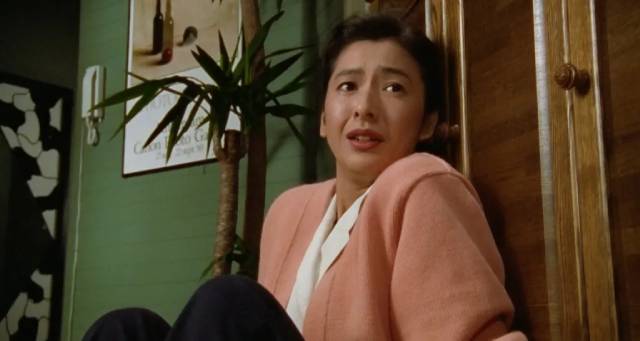
Door/Door II: Tokyo Diary (Banmei Takahashi, 1988/1991)
I did, however, watch a couple of releases from directors unfamiliar to me. Banmei Takahashi has a long filmography spanning fifty years from the early ’70s to the present, but the double-feature of Door (1988) and Door II: Tokyo Diary (1991) are the first of his films that I’ve seen. Despite the titles, they’re not actually related, though both are centred on endangered women. In Door, Yasuko (Keiko Takahashi, the director’s wife) is a middle-class housewife and mother living in a high-rise, with her husband frequently away on business, leaving her to a seemingly endless round of chores and childcare. This tedious existence is subject to intrusions in the form of persistent marketing phone calls and door-to-door salesmen. She is made to feel guilty by these functions of capitalism for merely trying to assert her right to privacy – if she won’t submit to their pitches, she’s putting their employment at risk.
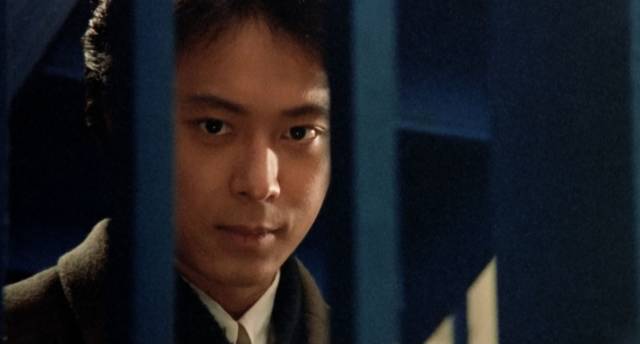
Fed up, she responds aggressively to a salesman who tries to force his way into the apartment, slamming the door on his fingers. This unleashes an escalating campaign of harassment which quickly gets nasty – he stuffs a semen-soaked tissue into her mailbox, paints offensive graffiti on her door, creates a scene by yelling and kicking the door. He also makes increasingly threatening phone calls. She becomes afraid to answer the phone or leave the apartment, panics when her young son sneaks out to see his friends… and eventually the salesman breaks in and the film’s final act erupts in bloody violence. Door is a fine example of a psychological thriller in which a minor incident becomes a matter of life and death, tautly directed and well-acted by Keiko Takahashi as Yasuko and Daijiro Tsutsumi as Yamakawa, the salesman who believes his job gives him the right to force his way into other people’s lives.
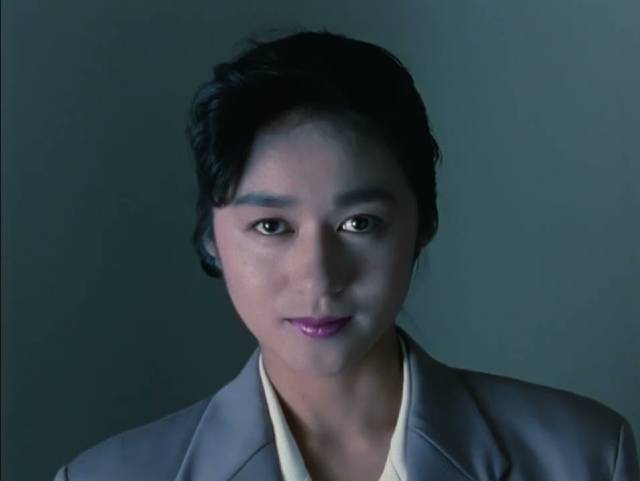
Door II: Tokyo Diary isn’t a thriller, though it does contain a lot of sex and violence. (The title was imposed by a distributor who wanted to cash in on the previous film’s success.) It covers a few days in the life of Ai (Chikako Aoyama), a high-class call girl who works independently, much to the annoyance of those who control the business. She’s willing to do pretty much anything a John asks of her, whatever the kink, and yet some men prefer to force her, subjecting her to violence. When she finds herself becoming emotionally attached to one customer and viciously attacked by another, she has to question her choices. Everything finally spills out at the wedding of a pair of friends, where she confronts the gathered families and friends with their hypocrisy in a raw, brutally honest speech.
The disk includes a Jasper Sharp commentary on Door and an interview with the director.

Beyond the Infinite Two Minutes (Junta Yamaguchi, 2020)
Junta Yamaguchi’s Beyond the Infinite Two Minutes (2020) is a terrifically entertaining first feature which treats its time paradox concept with a light comic touch. When the owner of a noodle shop discovers that there’s a two-minute discrepancy between his computer in the apartment upstairs and the security camera down in the shop, he finds himself caught in a strange web of time loops; he begins to receive information from himself two minutes in the future which leads to complications when his friends become involved and local gangsters turn up … and eventually a pair of time cops from the future arrive to resolve the paradox which is threatening the time stream. Played in long takes and real time (such as it is!), cleverly suggesting that it’s a single, continuous shot, the film has a great deal of charm, with the rapid pace holding any reservations about the narrative at bay while you watch. This would make a fine mind-bending double-bill with Nacho Vigalondo’s Timecrimes (2007).
*
To be continued…
Comments